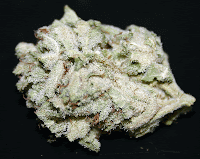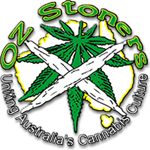Prohibitionists have a long history of exploiting tragedy to further their own drug war agenda. Case in point: Members of Congress in the 1980s seized upon the overdose of basketball star Len Bias to enact sweeping legislative changes establishing mandatory minimum sentencing in drug crimes, random workplace drug testing for public employees, and the creation of the Drug Czar’s office.
So it was hardly surprising to see anti-drug zealots return to this tried-and-true playbook in the days immediately following the shooting this past January of Arizona Congresswoman Gabrielle Giffords and 18 civilians. Only hours after alleged shooter Jared Lee Loughner was taken into custody, pundits on the political far right opined that the 22-year-old former pot smoker had been driven mad by weed.
For example, less than 24-hours after the shooting former George W. Bush speech-writer David Frum p
osed the question, “Did pot trigger the Giffords shooting?” to which the longtime conservative commentator answered, “Increasingly, experts seem to be saying ‘yes.’”
Frum’s accusation appeared to gain a modicum of respectability one month later when the mainstream media highlighted a report in
The Archives of General Psychiatry that purported to have linked marijuana use with psychosis.
“It is increasingly clear that marijuana is a cause of schizophrenia,” the study’s lead researcher, Matthew Large of Prince of Wales Hospital in New South Wales, Australia,
told the online publication Web MD in February. (In a separate interview he said he was “horrified” by suggestions that the plant should be legalized and regulated.) Large further insisted, “[T]he schizophrenia caused by cannabis starts earlier than schizophrenia with other causes.”
Or not.
In truth, the supposed new ‘study’ contained no new findings at all. Rather, Large and his team simply reviewed previously published research – much of it decades old.
“There are no new data. I want to emphasize that. This is a meta-analysis, which means it (reviews) the studies that were already out there,” SUNY Albany psychology professor Mitch Earleywine, author of the book
Understanding Marijuana: A New Look at the Scientific Evidence, explained on the
NORML Audio Stash days after the report’s release. “What you’re not hearing in the media is that in fact, this (reported association) is probably early-onset folks self-medicating (with cannabis).”
There are several published reports to back up Earleywine’s suspicion. For instance, a 2005 study of 1,500 subjects that appeared in the scientific journal
Addiction reported that the development of “psychotic symptoms in those who had never used cannabis before the onset of (such) symptoms … predicted future cannabis use.”
Other studies reinforcing Earleywine’s ‘self-medication’ theory include a
2008 study published in the International Journal of Mental Health Nursing which found that schizophrenics typically report using cannabis to reduce anxiety and “improve their mental state.” Marijuana use has also been associated with clinically objective benefits in some schizophrenics. Recently, a 2010 report in the journal
Schizophrenia Research found that schizophrenic patients with a history of cannabis use demonstrate higher levels of cognitive performance compared to nonusers. Researchers in that study concluded, “The results of the present analysis suggest that (cannabis use) in patients with SZ (schizophrenia) is associated with better performance on measures of processing speed and verbal skills. These data are consistent with prior reports indicating that SZ patients with a history of (cannabis use) have less severe cognitive deficits than SZ patients without comorbid (cannabis use).”
A 2011
meta-analysis published online by the journal
Schizophrenia Research also affirmed that schizophrenics with a history of cannabis use demonstrate “superior neurocognitive performance” compared to non-users. Investigators at the University of Toronto, Institute of Medical Sciences reviewed eight separate studies assessing the impact of marijuana consumption on cognition, executive function, learning, and working memory in schizophrenic subjects. Researchers determined that the results of each of the performance measurements suggested “superior cognitive functioning in cannabis-using patients as compared to non-using patients.”
Investigators stopped short of attributing subjects' cannabis use to the improved outcomes, hypothesizing instead that patients with superior cognitive skills may be more likely to acquire cannabis than subjects with lesser abilities. “[I]t is difficult to determine whether it is cannabis itself that triggers alterations in neuropsychological functioning or if drug-using patients represent a subset of the schizophrenia population who exhibit better neurocognitive performance,” they wrote. Nevertheless, they concluded that it would be reasonable to assume that “cannabis likely has modest … effects on neurocognitive function in schizophrenia.”
Other clinical literature also casts doubt on Large’s claim that marijuana use accelerates mental illness. In a study published last year, a team that included researchers affiliated with the Albert Einstein College of Medicine, Yale University, and the National Institute of Mental Health assessed whether lifetime pot use was associated with an earlier age of onset of symptoms in schizophrenic patients. They c
oncluded, "Although cannabis use precedes the onset of illness in most patients, there was no significant association between onset of illness and (cannabis use) that was not accounted for by demographic and clinical variables.”
The researchers also criticized the findings of previously published studies that purported to have uncovered a ‘pot trigger’ for mental illness. “Previous studies implicating cannabis use disorders in schizophrenia may need to more comprehensively assess the relationship between cannabis use disorders and schizophrenia.”
Unlike Earleywine, however, the researchers in this study were not convinced that a large percentage of schizophrenic patients are ‘self-medicating’ with pot. “We … found that about half of our subjects discontinued the use of cannabis when their psychotic symptoms worsened,” said Dr. Serge Sevy of the Zucker Hillside Hospital, who led the study. “(But) unfortunately, our study did not include questions about (patients’) reasons for using or discontinuing cannabis. I cannot provide the percentage of patients who discontinued cannabis use because of a worsening of psychosis … (versus those who) became too impaired to obtain cannabis.”
As for Large’s most serious claim, that juvenile marijuana use “is a cause of schizophrenia,” most experts on the subject – and most scientific reviews of the matter – disagree.
For example, authors of a
2009 study published in Schizophrenia Research said definitively that increased cannabis use by the public has not been followed by a proportional rise in diagnoses of schizophrenia or psychosis. Investigators at the Keele University Medical School in Britain compared trends in marijuana use and incidences of schizophrenia in the United Kingdom from 1996 to 2005. Researchers reported that the "incidence and prevalence of schizophrenia and psychoses were either stable or declining" during this period, even the use of cannabis among the general population was rising.
"
The expected rise in diagnoses of schizophrenia and psychoses did not occur over a 10 year period," they concluded. "This study does not therefore support the specific causal link between cannabis use and incidence of psychotic disorders. ... This concurs with other reports indicating that increases in population cannabis use have not been followed by increases in psychotic incidence."
In April, scientists at the University Hospital of Child and Adolescent Psychiatry in Bern, Switzerland also published
clinical trial data indicating that cannabis use plays virtually no role in the early onset of psychosis in younger patients. Researchers assessed the differences in the age of onset of psychosis among 625 patients admitted to the Early Psychosis Prevention and Intervention Centre in Melbourne, Australia. They reported, “Only cannabis use … starting at age 14 was associated with an earlier age at onset at a small effect size.” Overall, the age at onset for patients with first-episode psychosis “was not significantly different” among patients with a history of cannabis use versus non-users.
These results don’t particularly surprise Dr. Julie Holland, clinical assistant professor of psychiatry at the NYU School of Medicine and the editor of
The Pot Book: A Complete Guide to Cannabis – It’s Role in Medicine, Politics, Science, and Culture. “The bottom line here is no one knows exactly what causes schizophrenia, and scientists have been looking for decades,” she says. “The best explanation is a ‘stress diathesis’ model, where people have a genetic tendency toward schizophrenic illness, and then something triggers its appearance. But unless you have the genes, you won't get the illness. Cannabis won't change one’s genetic predisposition.”
Holland does caution that people with a predisposition toward schizophrenia “tend to have a stronger, more psychotic-like reaction to cannabis, but that is different from the idea that pot actually gives you schizophrenia, which is completely untrue.” As for the severity of these potential psychotic symptoms, Holland states, “When the drug wears off, so do its effects. There is no lasting psychosis from pot.”
Retired associate professor of psychiatry at Harvard Medical School, Dr. Lester Grinspoon, has studied both cannabis and schizophrenia for over 40 years, authoring the books
Schizophrenia: Psychopharmacology and Psychotherapy and
Marihuana The Forbidden Medicine. His expert opinion largely echoes the views of Drs. Holland and Earleywine.
“Schizophrenia is largely a genetically determined disorder. However, not all people who have this genetic makeup develop the disorder. So, we have been searching for other variables that must be involved but so far with little success,” he explains. “Recently we have seen the publication of a number of papers that point the finger toward cannabis. Because my work in schizophrenia was first undertaken in the 1960s when marijuana was first observed to be increasingly widely used by young people, I was always careful to include the possibility that the patient had previously smoked marijuana in my history taking. I can't tell you how many patients this involved, but it was certainly measured in the hundreds and not once did I find that it could be considered causal. Its use, on a few occasions, seemed like an attempt to alter an insufferable internal environment, much as people with schizophrenia often do with alcohol and tobacco.”
Ultimately, however, even if such a causal connection between cannabis use and mental illness were to one day be established, this finding alone would do little to support pot prohibition. In fact, the policy implications of such a determination should be just the opposite.
Health risks connected with drug use – when scientifically documented – should not be seen as legitimate reasons for criminal prohibition, but instead, as reasons for legal regulation. After all, there are
numerous adverse health consequences associated with alcohol, and it’s precisely because of these effects that the product is legally regulated and its use is restricted to specific consumers and settings. Similarly, if there are legitimate mental health risks associated with use of cannabis by certain individuals then a regulated system would best identify and educate these people so that they may refrain from its use. Placed in this context, drug warriors’ fear-mongering surrounding the issue of marijuana and mental health does little to advance the cause of tightening prohibition, and provides ample ammunition to wage for its repeal.
Editor’s Note: A
n earlier version of this story appeared online on hightimes.com. This story has been updated and expanded for AlterNet.
Paul Armentano is the deputy director of
NORML (the National Organization for the Reform of Marijuana Laws), and is the co-author of the book
Marijuana Is Safer: So Why Are We Driving People to Drink (2009, Chelsea Green).























